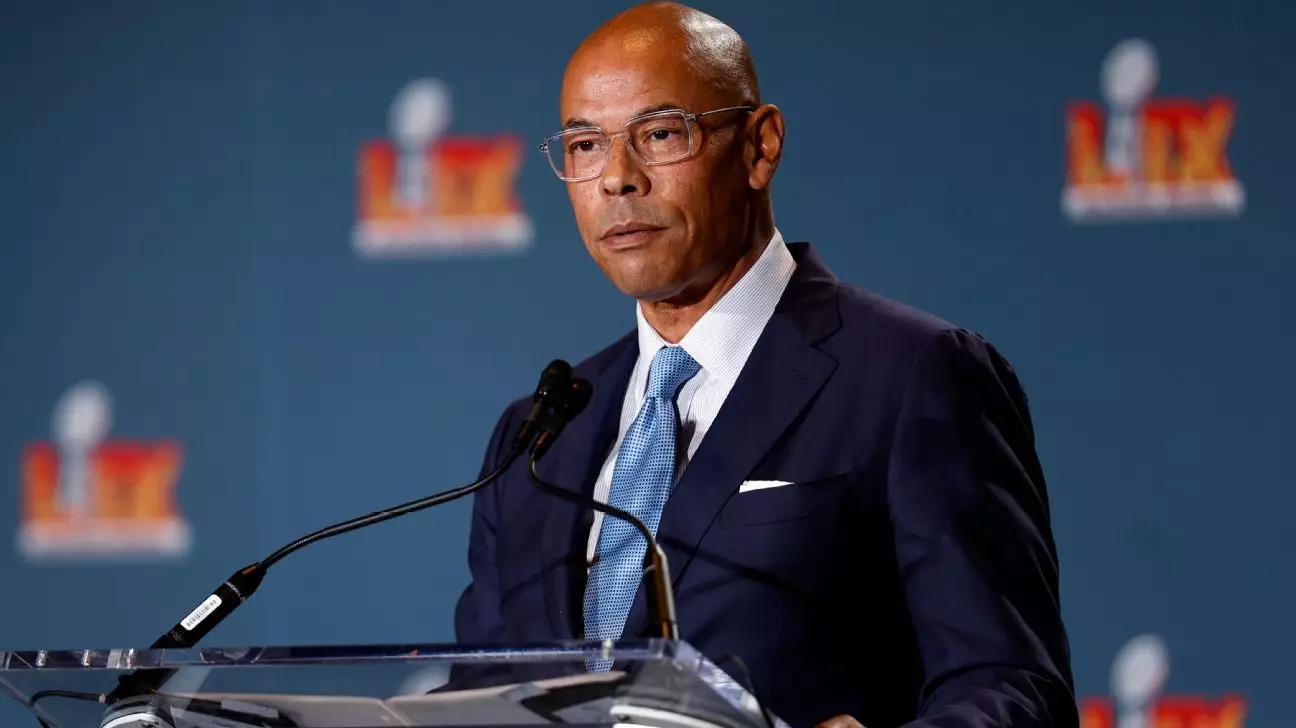The recent defiant stance of the NFL Players Association’s executive committee, vehemently defending Lloyd Howell Jr., masks a deeper fissure within one of the most powerful player advocacy organizations in professional sports. While the official statement portrays a united front, denying any calls for Howell’s resignation and affirming their collective commitment, the undercurrents tell a story of vulnerability and internal conflict. Such public assertions often serve as strategic distractions from unresolved tensions and questions that threaten the integrity of the union’s leadership.
Behind closed doors, there remains a palpable sense of unease. The union’s attempt to project stability appears more like an act of reassurance than a genuine reflection of consensus. It’s challenging to ignore the irony: an organization tasked with protecting players’ interests is embroiled in controversy stemming from questionable financial and ethical decisions. The fact that the executive committee is striving to maintain a narrative of solidarity despite evidence of internal disputes suggests a leadership struggling to confront its vulnerabilities transparently. The very act of denying dissent could unintentionally amplify suspicions that the union’s unity is brittle and easily fractured under scrutiny.
The Financial Entanglements That Erode Trust
Central to the controversy is Lloyd Howell Jr.’s involvement with the Carlyle Group, a private equity firm with vested interests in NFL franchise ownership. The union’s previous silence and subsequent denial of any conflict of interest appear increasingly tenuous when viewed through the lens of accountability. Howell’s decision to continue working for Carlyle despite concerns raised by a union attorney raises fundamental questions about conflict management and transparency.
Union leaders are supposed to serve as fiduciaries dedicated solely to players’ welfare. When their personal financial activities intersect with league affairs—particularly with firms actively seeking a stake in NFL franchises—the line between advocacy and self-interest blurs dangerously. Many critics argue that such arrangements undermine the union’s moral authority and erode the trust players place in their leadership. Howell’s reluctance to step away from Carlyle, despite warnings, smacks of either hubris or a failure of governance—both destructive to the credibility of the organization tasked with safeguarding player rights.
Furthermore, the secrecy surrounding the arbitration decision on the NFL’s collusion attempts adds another layer of suspicion. With details concealed behind confidentiality agreements and only revealed through investigative journalism, doubts about transparency and fair representation continue to grow. Players deserve full disclosure of proceedings that directly impact their contracts, yet they remain kept in the dark, fostering an environment ripe for skepticism and mistrust.
The Power Dynamics and the Danger of Leadership Cover-Ups
The arbitration ruling on the NFL’s alleged collusion—where findings of concerted action allegedly influenced negotiations—exemplifies the fragility of the union’s leadership veneer. Although the arbitrator dismissed claims of owner collusion with minimal damages awarded, the fact that there was an active deliberation about such collusion exposes a troubling reality: league executives may operate with a level of impunity, confident that their actions remain shielded from scrutiny.
The union’s decision to appeal, led by Howell, signals an emboldened stance—one motivated by a desire to uphold legal rights and a fair process, or perhaps an attempt togreenwash the organization’s mishandling of sensitive issues. Watching how the union navigates this complex legal terrain will reveal whether it values genuine advocacy or merely safety in established power structures. The hiring of Ronald C. Machen to review Howell’s activities indicates a recognition that leadership actions are under significant question, hinting that the inner circle fears internal exposure and public backlash.
The broader implication of these developments is a growing awareness that leadership within the NFLPA is at a crossroads. Unchecked power, conflicting interests, and secretive operations threaten to undermine its legitimacy. For players and fans alike, the challenge is to demand accountability; for the union executives, the critical task is to rebuild trust through transparency and integrity, rather than defensiveness and denial. Only then can the NFLPA hope to transcend its current crisis and truly serve its core mission: advocating fiercely for the rights of the players who propel the league’s success.


Leave a Reply